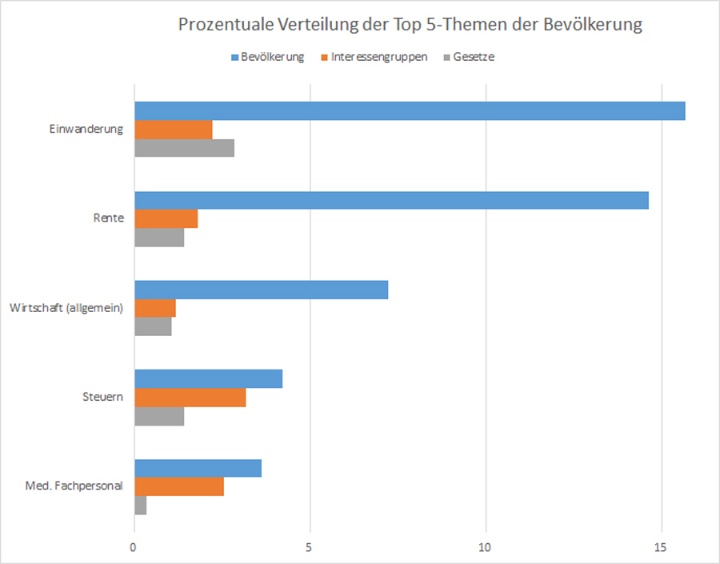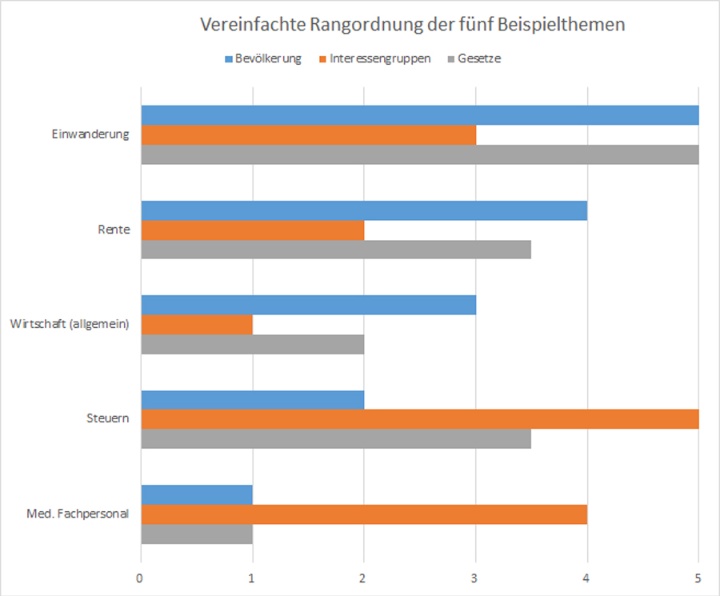Lobbying is generally suspected of exerting an unfair influence on political decisions for the benefit of certain people in privileged positions – mostly from the business world. But could lobby groups possibly also do the opposite, and work towards making the government take the wishes of the people seriously? A research group led by Prof. Patrick Bernhagen from the Institute of Social Sciences at the University of Stuttgart answers this question in the recently-finished project “Agendas and Interest Groups”.
Lobbying doesn’t exactly have the best reputation in broader society and in the media. However, if lobby groups are understood as representatives of various different interests in society, in an ideal world they can also improve the political representation of regular citizens. This would be the case if associations and comparable organizations addressed, prepared and communicated issues affecting people to the political system in the sense of a conveyor belt. To find out if they actually do this, the research group asked 1,003 regular citizens as well as 119 lobbyists which issues they thought were the most important. The answers were categorized into different subject areas and then compared with the roughly 300 bills which were introduced into the German parliament between 2016 and 2018.
When examining the results, it first becomes clear that the issues which are of interest to the public are much more concentrated than those of interest to the lobby groups and which form the subject of the bills. At the time of the survey (October 2017), the issues people were most concerned about were immigration (mentioned by 16.7% of those mentioned), pensions (14.6%), the economy in general (7.2%), taxes (4.2%) and the shortage of medical staff (3.6%). In comparison, the issues being dealt with by the lobby groups and the government are significantly more varied, and at the same time more specific. For example, taxes, something which is also very important for lobbyists, only comprised 3.2% of the issues named by this group. “That shows that lobby groups also feed issues into the political system which are of hardly any interest to the general population”, says Director of Studies Prof. Patrick Bernhagen and his colleague Felix Goldberg. “On the one hand, this means that special interests are being represented. On the other hand, niche issues should also be represented in a pluralistic society.”
Do lobby groups actually work as conveyor belts
Whether lobby groups actually work as conveyor belts, however, we cannot say. This also presumes a certain congruence between the issues represented by the lobbyists and those of interest to the general population. In order to determine this congruence, the scientists analyzed how the top issues among the general population from five selected areas were ranked by lobbyists and represented in the legislature. The results of this actually showed certain overlaps: For example, immigration, the top issue among the general population, was likewise given the most attention in the legislature in the period under review. Among lobbyists, it was the third-biggest priority. A similar story exists when it comes to pensions. This congruence is only absent regarding “medical staff”. This issue, which is especially important to lobby groups, only received minor attention in the legislature during the period under review.
The study goes on to show that the interests of the general population are represented less by business groups and employer groups than by other lobby groups such as environmental and consumer associations. However, the intersection between business interests and the legislature is somewhat higher. Consequently, the non-business associations manage to represent the public’s concerns somewhat better. Business associations however are more successful at getting their issues into the legislative process. “Therefore, lobbying can improve the functioning of representative democracy by bringing issues which are important to the population into the political system”, a researcher was quoted as saying. At the same time however, the fact that the lobby groups which represent the issues of the general population more closely have less influence on the agenda of the government than other groups means lobbying functions less well.
Expert Contact:
Prof. Patrick Bernhagen, Felix Goldberg, University of Stuttgart, Institute of Social Sciences, Dept. I Political Systems and Political Sociology, Tel. +49 711 685-82751, E-Mail
Pakull, Dominic; Goldberg, Felix; Bernhagen, Patrick 2019: How many citizens are involved in interest groups? Congruency of issues between citizens and organized interests in Germany. Working Paper.




